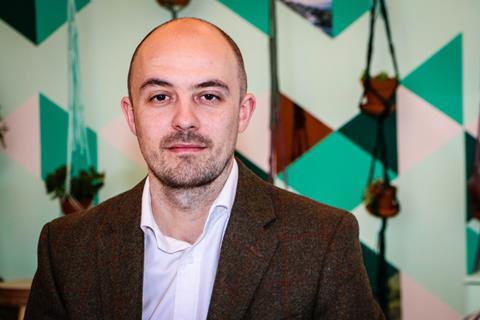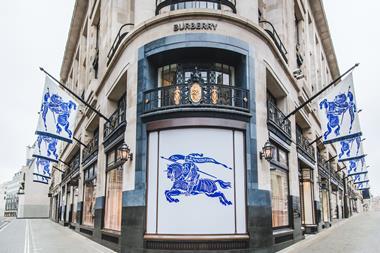PROMOTIONAL RESEARCH
Secret Sales, Cotton Traders, Love the Sales and 77 Diamonds reveal how they have invested in AI, what the results have been and where they plan to go next with the technology in 2024
AI is the technology – or rather, family of technologies – currently dominating retail boardroom discussions.
It has the potential to change every part of retail, with what feels like near-endless opportunities, but implementing it comes with its challenges, too.
So, practically speaking, how are retailers using AI right now and in what areas of their businesses are they implementing the tech? What triggered the decision to invest? What have the initial results been? And which areas of their businesses do they plan to invest in AI for next year?
Retail Week put these questions to four retailers to provide inspiration for how others can use AI to transform their customer strategies
Secret Sales
- Transitioned from a members-only flash Sale site to a premium off-price marketplace for fashion, home, beauty and homeware.
- Founded in 2007 by Nish and Sach Kukadia. Acquired by Lifestyle Retail Group in 2020, which was founded by Chris Griffin and Matt Purt.
- Full profit and revenue figures are not disclosed but achieved 80% like-for-like growth in 12 months to December 31, 2022. The same period saw a 125% increase in total inventory with stock amounting to £3bn.
- Forecasts 85% like-for-like growth in 2023.
- Recent overseas launches include Ireland in November and acquiring Spanish fashion etailer Dreivip in September.

“By utilising data-driven insights and new-generation AI integrations, we’ve enhanced product data enrichment, boosting SEO and streamlining the customer experience.
“We’ve been able to take retailers’ products and create richer product attributes and meta tags to enhance the visibility of products, so customers get served the right product at the right time. Being able to guide customers to the most relevant products, and improving personalised recommendations, has helped us facilitate a seamless, premium shopping experience to keep our customers coming back for more. By suggesting accurate product information to customers this has also contributed towards our extremely low returns rate (16%), thereby reducing the greenhouse gases associated with shipping back and forth.
“This year, we’re committed to further investing in AI for customer acquisition and overall business growth.”
Cotton Traders
- British heritage fashion retailer founded in 1987 by former rugby players Fran Cotton and Steve Smith.
- Recorded “most successful financial year to date” for 2022 with 3% increase in EBITDA to £12.6m for 12 months to December 31.
- 10.6% increase in turnover to £111m with a 17% boost in new customer acquisition year on year.
- 79% of sales came from direct channels and 21% from its store portfolio.
- Online sales were up 16.6%, while app sales rose 46% year on year.

“Our decision to invest in AI has further improved the already strong contribution product recommendations make to website revenue. A users’ affinity to products for a particular gender and/or product category heavily influences the logic of products that appear in product recommendations zones across key product discovery touchpoints across the Cotton Traders site.”

“In regard to other areas, the business is evaluating further initiatives as part of an ongoing AI strategy. The focus here really is on customer benefit and value as opposed to technology for technology’s sake. However, it is plain to see that AI can facilitate further improvements to our multichannel business.
“Two areas under review are: further extending product recommendations across the direct sales channels; meaning offering via our contact centre as well as the website. Another initiative is enhanced customer support and service through AI self-serve, this would benefit both the customer and business at large by providing responses through natural language queries. The intent recognition in modern true AI solutions is much different to the chatbots of old and therefore could yield operational efficiencies along with customer satisfaction.”
Love The Sales
- Founded in 2014 by Stuart McClure, chief technology officer David Bishop and chief executive Mark Solomon.
- The London-based business partners with over 1,000 retailers to bring together the best Sale offers available online, offering brands across fashion, beauty, electronics, home and garden.
- Retail partners include Adidas, Calvin Klein, Gant and Nike.
- One million Sale items are presented to customers using machine learning platform Minerva.

“We use AI across a number of core parts of our system. As a marketplace we take on hundreds of thousands of products, exacerbating the normal demands on an ecommerce team.
“Our proprietary AI ingests products, analysing both the visual and textual aspects of each product. It then uses this data to assign attributes to the product. For example, a shoe may have tags for colour, heel type, heel size, toe type, shoe style. This information is then used to show the product in the right places. However, it then uses this tagging to build a picture of what customers are looking at, or not, to start to put together a continuously improved set of products to show when the user browses the site, or in our CRM and marketing activity. This offers very strong engagement and conversion metrics.
“As opposed to making a decision to move to AI, we had always intended it to be a part of our tech stack. From the outset we knew that the demands of marketplace would require technology to solve the problems in a meaningful way. It also means profitability is more easily achieved as a business overall, because you can optimise experience, product recommendations, engagement and conversion on the consumer side across far wider array of people.”
77 Diamonds
- Founded in 2004 by Vadim Weinig and Tobias Kormind, based in London.
- Retails online and via luxury showrooms in London, Manchester, Zurich, Stockholm, Frankfurt, Munich and Berlin.
- £28.4m in revenue in fiscal year ending December 31, 2022, down from £30m in 2021, due to macroeconomic conditions impacting consumer spend.
- Strong start to 2023 with Q1 sales 3% higher than same period in 2022.

“At present, we are using AI in the following sectors:
“Design – we often use generative AI in our creatives to supplement missing backgrounds in jewellery photoshoots. This saves our creative directors a lot of time and helps us scale imagery whichever way we want without losing the appeal of an original photo.
“Research/content creation – generative AI tool ChatGPT is a big help when it comes to creating educational content for customers learning about diamonds or precious stones. We don’t copy/paste what ChatGPT offers up, as we also conduce our own research internally. However, this tool does the ‘groundwork’, ie: organising texts into separate bullet points and those most noteworthy and researching SEO-friendly text.
“Paid ads – we use Google’s Performance Max to bring more visibility to our advertisements on social media. Performance Max uses Google AI across bidding, budget optimisation, audiences, creatives, attribution, and more.’
“Translations – this is key to reaching a wider audience. Based not only in the UK, but in Germany, Switzerland and Sweden, we constantly need to perfect our translations. We use professional translators for languages spoken by our largest customer base (German, for example), however DeepL has been an incredible tool for short translations in new languages. I would add we’re looking to have a process in place to review these translations, so our faith in 100% accuracy with AI isn’t entirely there yet.
“Website development – we have been using [platform and cloud-based service for software development] GitHub for a while now to speed up our website development. This has helped reduce our workload and update the website quickly and effectively for customers (adding new information, updating product selection, providing better quality photography).
“Internal meetings – we also use [AI meeting assistant] MeetGeek during our meetings to take notes of what is being discussed. This saves us time and has been a great improvement in our team’s workflow.
“We are really looking to increase our use of AI given the vast improvements it has made for us so far. In 2024, we’re looking to use new AI tools for:
- Product recommendations based on customers’ choice of jewellery. This would be especially useful for customers who have purchased an engagement ring from us and are looking to create matching wedding bands.
- Predictive analytics. For example, tracking and forecasting customer behaviour for our website so we provide exactly what they are looking for ahead of time.
- Customer service chatbots. This is a high priority for us, as we’re very keen to provide the best customer service possible. This includes giving customers immediate responses to their questions. People purchasing fine jewellery for a proposal or a significant moment want to make the perfect choice, and often need expert help immediately while they are still choosing their diamond or designing their ring setting.”

Looking for more information about how AI can drive your CX? Access your free copy of the 12 Hottest AI Campaigns for 2024 from industry experts Bloomreach.
It will tell you how AI-powered marketing campaigns can help businesses like yours better understand customers, deliver more personalised experiences and boost revenue.

























